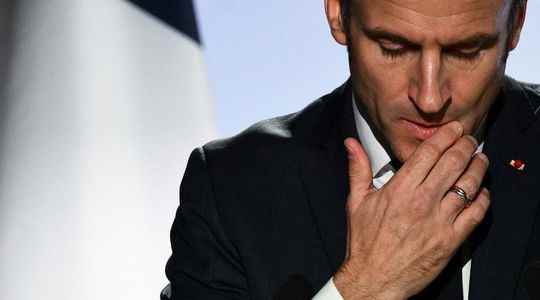He did it again. Referring to the future of the European security architecture during an interview with TF1 on Saturday, Emmanuel Macron called for reflection on “how we protect our allies and the Member States, by giving guarantees for its own security to Russia. ” The Head of State had previously underlined Vladimir Putin’s “fear” that “NATO would come to his doorstep”. A declaration which aroused the anger of several political leaders, in Ukraine, but also in Eastern and Northern Europe. Especially since this is not the first outing of this kind from the French president, who had already, last spring, called for “not to humiliate Russia”. All this is not likely to improve confidence in France in the countries neighboring Russia, points out former ambassador Michel Duclos, now special adviser to the Institut Montaigne and author of La France dans le upheaval of the world (L’Observatoire, 2021).
L’Express: Emmanuel Macron’s remarks on the “security guarantees” to be offered to Russia sparked strong criticism this weekend. How do you analyze this new statement from the French president?
Michael Duclos: First of all, one can wonder about the opportunity for the French president to have made these remarks. In doing so, he took the risk of attracting criticism not only from Ukraine, but also from Poland, the Baltic countries and other countries located in the eastern part of Europe. One of the problems this poses for him is that he will need them if he wants to move forward with his plan to build a stronger and more united Europe, particularly in terms of defence.
Basically, it seems obvious that one day we will have to try to rebuild agreements with Russia. However, can they really relate to security guarantees for Moscow as Emmanuel Macron asserts? One can only have doubts, because this war has shown that the current leaders in Russia were not motivated by possible security considerations. Otherwise, they would have seized the avenues of dialogue that Westerners offered them in the weeks preceding the invasion. As long as Putin or his eventual successors have the will to redraw the map of Europe and subjugate their neighbors, the solution to the problem will not be limited to providing security guarantees to Russia.
Why is Emmanuel Macron’s statement going particularly badly in Eastern and Northern European countries?
This maintains a fundamental distrust of France. Emmanuel Macron’s perception of Russia is radically different from that of countries like Poland, the Baltic countries or Ukraine. For historical as well as political and geographical reasons, they see Russia above all as a threat that can only be averted by a military defeat by Moscow on the Ukrainian front. In this context, the more diplomatic approach that the French president seems to favor is arousing mistrust. However, this gap between the different perceptions means that we are not audible in these countries, as French people, when we give the impression of underestimating the Russian threat.
Does this weaken the strategic autonomy project carried out by Emmanuel Macron?
Absolutely. If some Europeans are suspicious of us, they obviously won’t trust the European Union to ensure their defence. They will always prefer the United States and NATO. Finally, this type of statement by Emmanuel Macron plays against the project he wants to carry on the European continent. It is astonishing, from this point of view, to see him taking the country he will need the wrong way.
With this statement, isn’t the French president going in the direction of Moscow’s narrative, which explains the invasion of Ukraine by the threat that an extension of NATO would represent?
Emmanuel Macron indeed gives the impression of taking the Russian discourse literally. However, this same discourse is belied by the facts: Ukraine was not about to join NATO when Putin chose to invade it. Nor did the Atlantic Alliance pose a particular security threat to Russia. It is surprising to see the French president take up this dialectic, even if it must be admitted that it is an opinion shared by other political leaders. In reality, since 2012-2013, Vladimir Putin has chosen confrontation with the West. Choice that he renewed quite clearly with this invasion of Ukraine.
This is not the first time that Macron has been criticized for remarks deemed too lenient with Russia. Why does he continue on this line?
The president expresses himself in a way that may seem surprising, but it is undoubtedly a question of personal conviction. Basically, he is probably on the same wavelength as Joe Biden, even if the American president does not express it in the same way. Moreover, it should all the same be remembered that Emmanuel Macron’s remarks do not sum up all of French policy with regard to Ukraine. At the same time, Paris is doing what is necessary in terms of aid to kyiv and sanctions against Moscow. The European partners therefore do not judge France solely on the comments that Emmanuel Macron sometimes makes about Russia.
